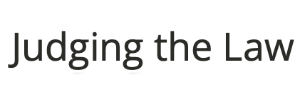One thing most law students hope to find after they get licensed is a mentor. Ask any practicing lawyer and they will tell you how little they knew about practicing law when they first sat behind a desk, filled with worry about being hired to handle a client’s matter. For lawyers who hang their shingles right after passing a bar exam, finding a mentor seems existential; new lawyers who join a firm get senior lawyers to show them the ropes, but training is mostly in the context of assignments. As for mentoring to avoid common mistakes during the first few years of practice that aren’t discussed in law school, there is little training for new lawyers, except for what might cross their paths by happenstance.
Against that backdrop, every state’s Rules of Professional conduct expect new lawyers to know the rules and how to avoid breaching them, which is a completely unrealistic expectation, full of risk of getting into trouble. The “best practices” used by lawyers are generally unwritten and mostly learned in the school of hard knocks. Law school does a great job of preparing the future bar to act and sound like lawyers, with instruction driven by existing paradigms. This is an adversarial system of law, and law schools teach future lawyers how to understand the law and frame it to their client’s advantage inside a fact-based situation. In truth, lawyers usually hide strategies in order to maximize their positions and new lawyers are often unwary victims.
Also, many experienced lawyers sometimes make foolish mistakes, which is why seasoned lawyers have stories to tell that can save the day down the road for some hapless attorney; lawyers who’ve survived through it all are often happy to share those stories – but where is the audience? There’s no time to tell or hear those stories in law school, even though they could help a new lawyer avoid the unseen traps that can wreak havoc on a new lawyer’s life and lead to malpractice claims and unhappy clients.
Reported cases about malpractice claims prove that costly mistakes are also made by experienced lawyers, including highly respected ones in large firms. All attorneys (and law students) have read such cases. The ABA Model Rules of Professional Conduct are meant to highlight that lawyers will make fewer mistakes if they practice their craft with a consciousness focused on what the rules require of all lawyers. Brand new lawyers study those rules, but they don’t hit home until the lawyer tries to address a real-life client in a real world of strategic tools that are often only “visible” to seasoned lawyers who learned the hard way.
Law schools cannot spare their students from the pain of mistakes after they pass a state bar; even if some law professors personally experienced traps to avoid after graduating, a course on that topic wouldn’t satisfy accreditation or help students to think like lawyers. But words to the wise could save the day for some new attorney, except those words aren’t being delivered to them. They are nowhere to be found. There’s no reason that they aren’t, they just aren’t. And the time has come to let those words flow freely and far.
The thing is that we can easily bring the first-hand stories of learned lawyers to every new lawyer without asking the law schools to take on that responsibility. After all, it’s well understood that what law schools teach is driven by the status of accreditation by states and by the American Bar Association; in other words, what states and the ABA conclude lawyers need to know is what the law schools must teach—and in their own way, maybe well, maybe not.
Mentoring can raise the level of awareness of new lawyers so that they know what to watch out for. That will make them better lawyers right from the start. An 8-Hour Audio Course for new lawyers comes free with a membership to this Library, which is also free. The titles of the eight hours are HERE (link). Listening to this course—while exercising, commuting, showering, eating, or just enjoying nature—will undoubtedly lead to fewer malpractice claims and ethical breaches for lawyers who are wet behind the ears. The value of this course must not be understated. Every hour-long segment has cautionary tales that can save a newly licensed attorney, whether solo or with a firm, from making mistakes that can be easily avoided.
Doing their best for clients is the goal of all new lawyers, and this course—free to all law students and alumni—can obviate countless deductibles.

